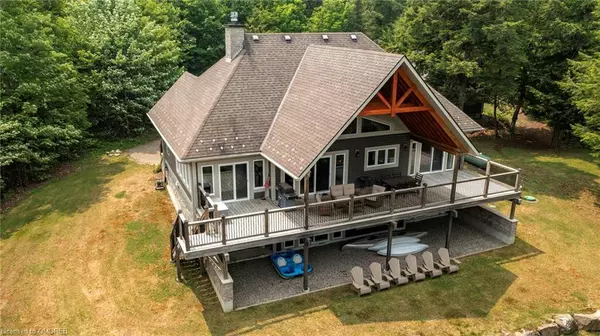Renovate or Relocate? What to Consider Before You Decide

Deciding whether to renovate your current home or relocate to a new one is a significant decision that many homeowners face. Both options come with their own set of advantages and challenges. To help you make an informed choice, let's explore the key factors you should consider. Your Current Home's Condition Before making any decisions, take a close look at the current state of your home. Consider the following: Structural Integrity: Are there any major structural issues that need addressing, such as foundation problems or roof repairs? These can be costly and time-consuming to fix, and may influence your decision to start fresh elsewhere. Space Requirements: Does your current home meet your space needs, or are you feeling cramped and in need of more room? Consider whether an extension or reconfiguration of the existing space could solve this issue. Modernization Needs: Is your home outdated in terms of design, fixtures, and appliances? Would a renovation bring it up to modern standards? Think about the extent of the updates needed and whether they will align with your vision for your home. Financial Considerations Your budget will play a crucial role in determining whether to renovate or relocate. Here are some financial aspects to consider: Renovation Costs: Obtain detailed estimates for the renovations you have in mind, including materials, labor, permits, and potential unexpected expenses. Compare these costs with the potential increase in your home's value post-renovation. Moving Costs: Calculate the costs associated with selling your current home and buying a new one, including real estate agent fees, closing costs, moving expenses, and any necessary repairs or upgrades to get your home market-ready. Return on Investment (ROI): Research the potential ROI for both renovating and relocating. Will the renovations increase your home's value significantly, or would investing in a new property be more beneficial in the long run? Consider the resale value and market trends in your area. Emotional Attachment Your emotional connection to your current home is another important factor. Consider: Memories and Sentimental Value: If your home holds significant sentimental value and memories, renovating might be a more appealing option. Think about the emotional impact of leaving a place where you have built a life. Community: Evaluate your attachment to your current location. Do you have strong ties to the community, schools, or local amenities? Consider the social and emotional benefits of staying in a familiar environment versus the excitement of a new community. Lifestyle and Future Plans Think about your lifestyle and future plans when deciding whether to renovate or relocate: Long-Term Goals: Are you planning to stay in the same area for the foreseeable future, or do you anticipate a move in the next few years? If you see yourself staying put, a renovation might be a worthwhile investment. Family Needs: Consider your family's needs, such as proximity to work, schools, and recreational activities. Will your current home or a new location better meet these needs? Think about how your family's requirements might evolve over time. Flexibility: Renovating allows you to customize your home to your exact preferences, while relocating might offer new opportunities and a fresh start. Weigh the benefits of personalizing your space against the potential advantages of a new home. Market Conditions The current real estate market can also influence your decision: Housing Market Trends: Research the housing market in your area. Is it a buyer's or seller's market? How quickly are homes selling, and at what prices? Understanding market conditions can help you gauge the potential ease or difficulty of selling your current home and finding a new one. Renovation Trends: Look into the popularity of home renovations in your area. Are renovated homes selling for a premium? Consider whether investing in renovations will make your home more competitive in the market. Environmental Impact Finally, consider the environmental impact of your decision: Sustainability: Renovating can be a more sustainable option, as it reduces the need for new construction and minimizes waste. Think about how you can incorporate eco-friendly materials and practices into your renovation plans. Energy Efficiency: Evaluate the potential for improving your home's energy efficiency through renovations. This can lead to long-term savings on utility bills and a smaller carbon footprint. Consider upgrades such as insulation, energy-efficient windows, and solar panels. In Conclusion... Deciding whether to renovate your current home or relocate to a new one is a complex decision that requires careful consideration of various factors. By assessing your home's condition, financial implications, emotional attachment, lifestyle needs, market conditions, and environmental impact, you can make an informed choice that best suits your unique situation. Whether you choose to renovate or relocate, the goal is to create a living space that meets your needs and enhances your quality of life. Need guidance? If you have questions about your specific situation, get in touch. We'll help you get on the right path to reach your goals.
Read More6 Things Canadian Sellers Need to Know Today that Weren't True Last Year
The housing market has been a seller's market throughout the pandemic, but is this still the case? The current trends are pointing towards an end to the real estate market conditions that created a bonanza for sellers. Many issues created a high-pressure market environment severely skewed in favor of sellers. From sky-high home prices, intense competition between buyers, and tactical play from sellers waiting for the right moment to put their homes for sale. It's worth saying outright: things are changing, and there are things home sellers need to be aware of today that weren't true last year. Here's what they are: 1. Home prices growth is returning to pre-pandemic levels This is not the same as saying home prices are declining; they're not. Prices are still growing and won't begin falling in the foreseeable future. It's the rate at which they're increasing that's changing. All the signs point to a return to pre-pandemic levels of growth. So, instead of the unprecedented increases, we're now seeing a more modest year-over-year growth. The number of home sales and mortgage applications are also on the decline from their peaks. This means that the waiting game is over for sellers in practice. You might have been thinking about selling your home but were waiting for home prices to reach their peak to maximize their returns on the sale. But the peak has already passed. It is doubtful that we'll see any more of the skyrocketing levels of home price increases any time soon. So, if you're unsure whether you should be putting your home up for sale right now, the answer is yes. 2. Popular relocation hotspots have the highest home prices The way local home prices behave is always different from national averages. An area that's extremely popular with homebuyers will have different housing market conditions from one that homebuyers are keen to leave. In many cases of post-pandemic migration patterns, these local conditions have a marked effect on home values. If you are in a popular neighborhood, you are in luck. You can command a higher home price even if the overall trend is for slower growth. If you're not in one of those areas, you can still sell at a reasonable price if you know who your potential buyers are. An excellent real estate agent with local knowledge of your area can help find these buyers. 3. More affordable areas are in demand The overall trend among homebuyers right now is downsizing and saving on housing as much as possible. Moving patterns indicate a strong preference for more affordable areas. People are moving from the biggest and most expensive cities to smaller urban and suburban areas. These smaller communities offer good amenities and schooling but don't cost as much as the traditional vast metropolitan areas. Home sellers need to be aware of this. This doesn't mean you won't be able to sell if you are a home seller living in a metropolitan area. There is always movement both ways, and a general pattern away from a city doesn't equal an exodus. You need to market your home to the right buyer. 4. Homebuyer competition is still incredibly high As a home seller, you will see headlines like "homebuyer competition drops to the lowest levels in two years" and think you'll struggle to sell. This is not the case. Homebuyer competition pre-pandemic was already very high, with record numbers of millennial homebuyers entering the housing market in search of their first home. This is a generational trend, and it won't go away any time soon. Indeed, you may not sell your home within days of it going on the market, as was so often the case during the pandemic. But you will still sell within weeks in many places. 5. You may not get your first buyer One of the most prominent features of the pandemic-era housing market conditions was that many homebuyers were willing to waive conditions to secure a home. There is evidence that this is no longer the case. Some buyers may call off a deal after finding a less expensive home. Others may be forced to backtrack after a mortgage application falls through. While inconvenient, this is a common occurrence and something you must prepare for by giving yourself more time to sell this year than last year. 6. An experienced real estate agent is more important than ever Housing market conditions are a little trickier for home sellers this year than last year. It is even more critical this year than last year to get a real estate agent with solid experience and expertise in selling your type of home in your area. This will maximize your return on the sale and minimize the potential for delays and a deal falling through.
Read More
Recent Posts






